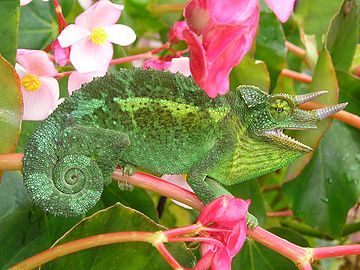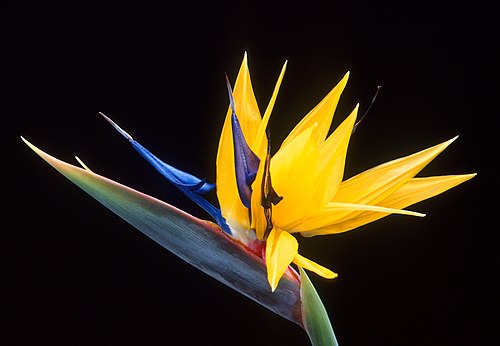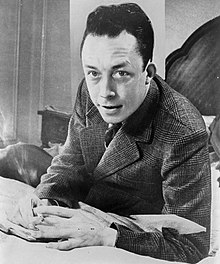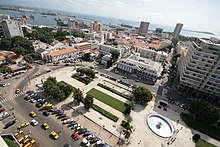Portal:Africa



Africa is the world's second-largest and second-most populous continent after Asia. At about 30.3 million km2 (11.7 million square miles) including adjacent islands, it covers 20% of Earth's land area and 6% of its total surface area. With nearly 1.4 billion people as of 2021, it accounts for about 18% of the world's human population. Africa's population is the youngest among all the continents; the median age in 2012 was 19.7, when the worldwide median age was 30.4. Based on 2024 projections, Africa's population will reach 3.8 billion people by 2099. Africa is the least wealthy inhabited continent per capita and second-least wealthy by total wealth, ahead of Oceania. Scholars have attributed this to different factors including geography, climate, corruption, colonialism, the Cold War, and neocolonialism. Despite this low concentration of wealth, recent economic expansion and a large and young population make Africa an important economic market in the broader global context. Africa has a large quantity of natural resources and food resources, including diamonds, sugar, salt, gold, iron, cobalt, uranium, copper, bauxite, silver, petroleum, natural gas, cocoa beans, and.
Africa straddles the equator and the prime meridian. It is the only continent to stretch from the northern temperate to the southern temperate zones. The majority of the continent and its countries are in the Northern Hemisphere, with a substantial portion and a number of countries in the Southern Hemisphere. Most of the continent lies in the tropics, except for a large part of Western Sahara, Algeria, Libya and Egypt, the northern tip of Mauritania, and the entire territories of Morocco and Tunisia, which in turn are located above the tropic of Cancer, in the northern temperate zone. In the other extreme of the continent, southern Namibia, southern Botswana, great parts of South Africa, the entire territories of Lesotho and Eswatini and the southern tips of Mozambique and Madagascar are located below the tropic of Capricorn, in the southern temperate zone.
Africa is highly biodiverse; it is the continent with the largest number of megafauna species, as it was least affected by the extinction of the Pleistocene megafauna. However, Africa also is heavily affected by a wide range of environmental issues, including desertification, deforestation, water scarcity, and pollution. These entrenched environmental concerns are expected to worsen as climate change impacts Africa. The UN Intergovernmental Panel on Climate Change has identified Africa as the continent most vulnerable to climate change.
The history of Africa is long, complex, and varied, and has often been under-appreciated by the global historical community. In African societies the oral word is revered, and they have generally recorded their history via oral tradition, which has led anthropologists to term them oral civilisations, contrasted with literate civilisations which pride the written word. During the colonial period, oral sources were deprecated by European historians, which gave them the impression Africa had no recorded history. African historiography became organized at the academic level in the mid-20th century, and saw a movement towards utilising oral sources in a multidisciplinary approach, culminating in the General History of Africa, edited by specialists from across the continent. (Full article...)
Selected article –
Orishas (singular: orisha) are divine spirits that play a key role in the Yoruba religion of West Africa and several religions of the African diaspora that derive from it, such as Haitian Vaudou, Cuban, Dominican and Puerto Rican Santería and Brazilian Candomblé. The preferred spelling varies depending on the language in question: òrìṣà is the spelling in the Yoruba language, orixá in Portuguese, and orisha, oricha, orichá or orixá in Spanish-speaking countries.
According to the teachings of these religions, the orishas are spirits sent by the supreme creator, Olodumare, to assist humanity and to teach them to be successful on Ayé (Earth). Rooted in the native religion of the Yoruba people, most orishas are said to have previously existed in òrún—the spirit world—and then became Irúnmọlẹ̀—spirits or divine beings incarnated as human on Earth. Irunmole took upon a human identity and lived as ordinary humans in the physical world, but because they had their origin in the divine, they had great wisdom and power at the moment of their creation. (Full article...)
Featured pictures –
Did you know (auto-generated) -

- ... that the growth of Christianity in 20th-century Africa has been termed the "fourth great age of Christian expansion"?
- ... that Mary Jane Patterson, whose mother was an African-American slave, gained a BA degree in 1862 having taken a "gentleman's course"?
- ... that Godwin Obasi has been described as "Africa's gift to the world of climate science"?
- ... that after the 1999 Tempe military base shooting, the Pan African Congress demanded a military funeral for the perpetrator?
- ... that in 1890 Cornelius N. Dorsette, often referred to as the first African-American physician in Alabama, founded Hale Infirmary, a hospital for Black patients and staff in Montgomery?
- ... that Dominion: An Anthology of Speculative Fiction From Africa and the African Diaspora was partly inspired by The 1619 Project?
Categories
Selected biography –
Albert Camus (/kæˈmuː/ ka-MOO; French: [albɛʁ kamy] ⓘ; 7 November 1913 – 4 January 1960) was a French philosopher, author, dramatist, journalist, world federalist, and political activist. He was the recipient of the 1957 Nobel Prize in Literature at the age of 44, the second-youngest recipient in history. His works include The Stranger, The Plague, The Myth of Sisyphus, The Fall and The Rebel.
Camus was born in French Algeria to pied-noir parents. He spent his childhood in a poor neighbourhood and later studied philosophy at the University of Algiers. He was in Paris when the Germans invaded France during World War II in 1940. Camus tried to flee but finally joined the French Resistance where he served as editor-in-chief at Combat, an outlawed newspaper. After the war, he was a celebrity figure and gave many lectures around the world. He married twice but had many extramarital affairs. Camus was politically active; he was part of the left that opposed Joseph Stalin and the Soviet Union because of their totalitarianism. Camus was a moralist and leaned towards anarcho-syndicalism. He was part of many organisations seeking European integration. During the Algerian War (1954–1962), he kept a neutral stance, advocating a multicultural and pluralistic Algeria, a position that was rejected by most parties. (Full article...)
Selected country –
 |
 |
|

| ||
Cape Verde, officially the Republic of Cape Verde (Portuguese: Cabo Verde, Portuguese pronunciation: [ˈkabu ˈveɾdɨ]), is a republic located on an archipelago in the Macaronesia ecoregion of the North Atlantic Ocean, off the western coast of Africa. The previously uninhabited islands were discovered and colonized by the Portuguese in the fifteenth century. The country is named after Cap Vert (meaning Green Cape) in Senegal, the westernmost point of continental Africa. It achieved independence from Portugal in 1975 after a long armed struggle in the jungles of Guinea-Bissau.
The politics of Cape Verde takes place in a framework of a parliamentary representative democratic republic, whereby the Prime Minister of Cape Verde is the head of government, and of a multi-party system. Executive power is held by the government. Legislative power is vested in both the government and the National Assembly. The Judiciary is independent of the executive and the legislature. (Read more...)
Selected city –
Dakar (/dɑːˈkɑːr, dæ-/ UK also: /ˈdækɑːr/; French: [dakaʁ]; Wolof: Ndakaaru) is the capital and largest city of Senegal. The department of Dakar has a population of 1,278,469, and the population of the Dakar metropolitan area was at 4.0 million in 2023.
Dakar is situated on the Cap-Vert peninsula, the westernmost point of mainland Africa. Cap-Vert was colonized by the Portuguese in the early 15th century. The Portuguese established a presence on the island of Gorée off the coast of Cap-Vert and used it as a base for the Atlantic slave trade. France took over the island in 1677. Following the abolition of the slave trade and French annexation of the mainland area in the 19th century, Dakar grew into a major regional port and a major city of the French colonial empire. In 1902, Dakar replaced Saint-Louis as the capital of French West Africa. From 1959 to 1960, Dakar was the capital of the short-lived Mali Federation. In 1960, it became the capital of the independent Republic of Senegal. Dakar will host the 2026 Summer Youth Olympics. (Full article...)
In the news
- 11 January 2025 – Somali Civil War, War against the Islamic State
- The Counterterrorism Forces of Puntland's disclosed a cave that was being used to store food by ISIL was captured by Puntland forces in Al-Miskad mountains, killed ISIL fighters and captured including foreigners and destroyed improvised explosive devices and hideouts, and downed three explosives-laden drones as the troops continued their thunder offensive against ISIL militants hiding in the remote areas of the Bari region, Puntland. (Garowe Online) (The Somali Digest) (VOA)
- 11 January 2025 – Sudanese civil war
- Battle of Wad Madani
- The Sudanese Armed Forces say that they liberated Wad Madani, the capital of Gezira State, Sudan, from the Rapid Support Forces. (Al Arabiya)
- 11 January 2025 – Nigerian bandit conflict
- Twenty-one government-backed fighters are killed during an ambush against a convoy in Baure, Katsina State, Nigeria. (Al Jazeera)
- 11 January 2025 – Ethiopia–Somalia relations
- Prime Minister of Ethiopia Abiy Ahmed and President of Somalia Hassan Sheikh Mohamud meet in Addis Ababa, Ethiopia, as part of a Turkey-brokered rapprochement to restore bilateral relations after a yearlong dispute due to the 2024 Ethiopia–Somaliland memorandum of understanding. (Bloomberg)
- 10 January 2025 – Somali Civil War, War against the Islamic State
- Puntland forces fight against ISIS in the IL-Ameira mountains, stopping seven drones loaded with bombs and removing ten landmines. The forces also destroy five ISIS bases. They capture military bases, including a water well in Jeceel Valley near Cal Miskaad mountains of Balidhidhin District, Bari, Puntland. (Horseed Media) (Hiiraan Online)
Updated: 14:19, 12 January 2025
General images -
Africa topics
More did you know –
- ... that at approximately 5,000 years old, the Lothagam North Pillar Site is thought to be the earliest and largest monumental cemetery in eastern Africa?
- ... that a 2020 study found that African countries which allowed foreign funding of NGOs had a higher voter turnout?
- ... that Essop Moosa, who was of Indian origin, became the first non-white player to play for an all-white soccer team in South Africa, appearing under a pseudonym?
- ... that the Seventh German Inner Africa Research Expedition served as cover for a secret First World War espionage mission?
Related portals
Major Religions in Africa
North Africa
West Africa
Central Africa
East Africa
Southern Africa
Associated Wikimedia
The following Wikimedia Foundation sister projects provide more on this subject:
-
Commons
Free media repository -
Wikibooks
Free textbooks and manuals -
Wikidata
Free knowledge base -
Wikinews
Free-content news -
Wikiquote
Collection of quotations -
Wikisource
Free-content library -
Wikispecies
Directory of species -
Wikiversity
Free learning tools -
Wikivoyage
Free travel guide -
Wiktionary
Dictionary and thesaurus
























































































